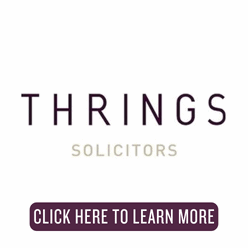In case you missed it see what’s in this section
Let's Talk

Three Ethical Traits Needed in Accountancy
There is a level of ethical professionalism that is expected of accountants. Handling the finances and sensitive data of third parties is a big responsibility and clients need to be able to trust accountants implicitly.
Fines across the industry rose to a record-breaking £46.5 million in 2022, so it’s never been more critical to ensure you’re approaching things appropriately. Accountancy firms have a duty to maintain ethical standards at all times and prevent fraudulent practices wherever possible.
Three fundamental characteristics form the foundation of ethical accounting: integrity, objectivity and confidentiality. Every accountant should exercise these when making business decisions to guarantee consistent, fair and accurate reporting.
Integrity
Accountants should always act with integrity. This means not just following rules to the letter but conducting themselves in a manner that matches the intent and spirit of those rules. In any scenario, professionals should use their best judgment to perform tasks with honesty and transparency.
Misleading or false information that is intentionally manipulated or plagued by errors can harm both businesses and their stakeholders. Being open and candid when mistakes have been made is essential to maintaining trust and the reputation of the firm.
Having your professional integrity questioned can do serious harm to a business; it’s one of the eventualities that accountants’ insurance is designed to help protect against.
Objectivity
The principle of objectivity in accounting is centred around providing unbiased data and financial statements that are backed up by solid evidence. Professional accountants should not allow any personal opinions or preferences to cloud their judgment and influence business decisions.
An accountant practising objectivity should present all financial information without any data distortion from their own biases. All transactions should be supported by business documents such as invoices and cash memos so that information can be verified.
Practising objectivity also includes avoiding conflicts of interest and staying within your area of expertise. If a conflict of interest is encountered, details must be disclosed immediately and safeguards put in place to help mitigate the potential threat.
Confidentiality
Accounting work involves handling sensitive data and firms have a legal responsibility to respect client confidentiality. Accountants should not disclose any information to an unauthorised party without express permission. The only exception to this rule is where there is a legal or professional duty to do so. This ensures that accountants are in compliance with GDPR laws and helps to foster trust between firms and stakeholders.
Robust security measures and regular training programmes on business ethics are required to secure client information. Privacy is an area which can see rapid developments in technology and standards so reviewing your practices is important to maintain the standards your clients will expect.
Weather in Bath
Listings

















